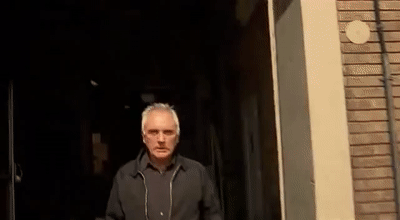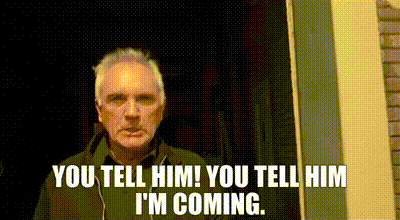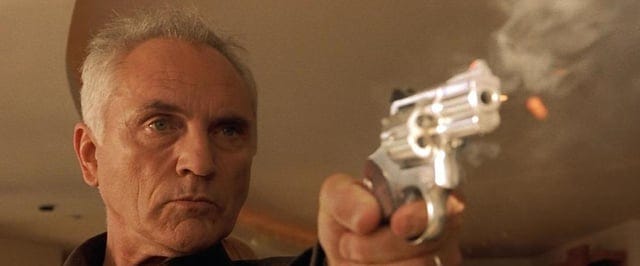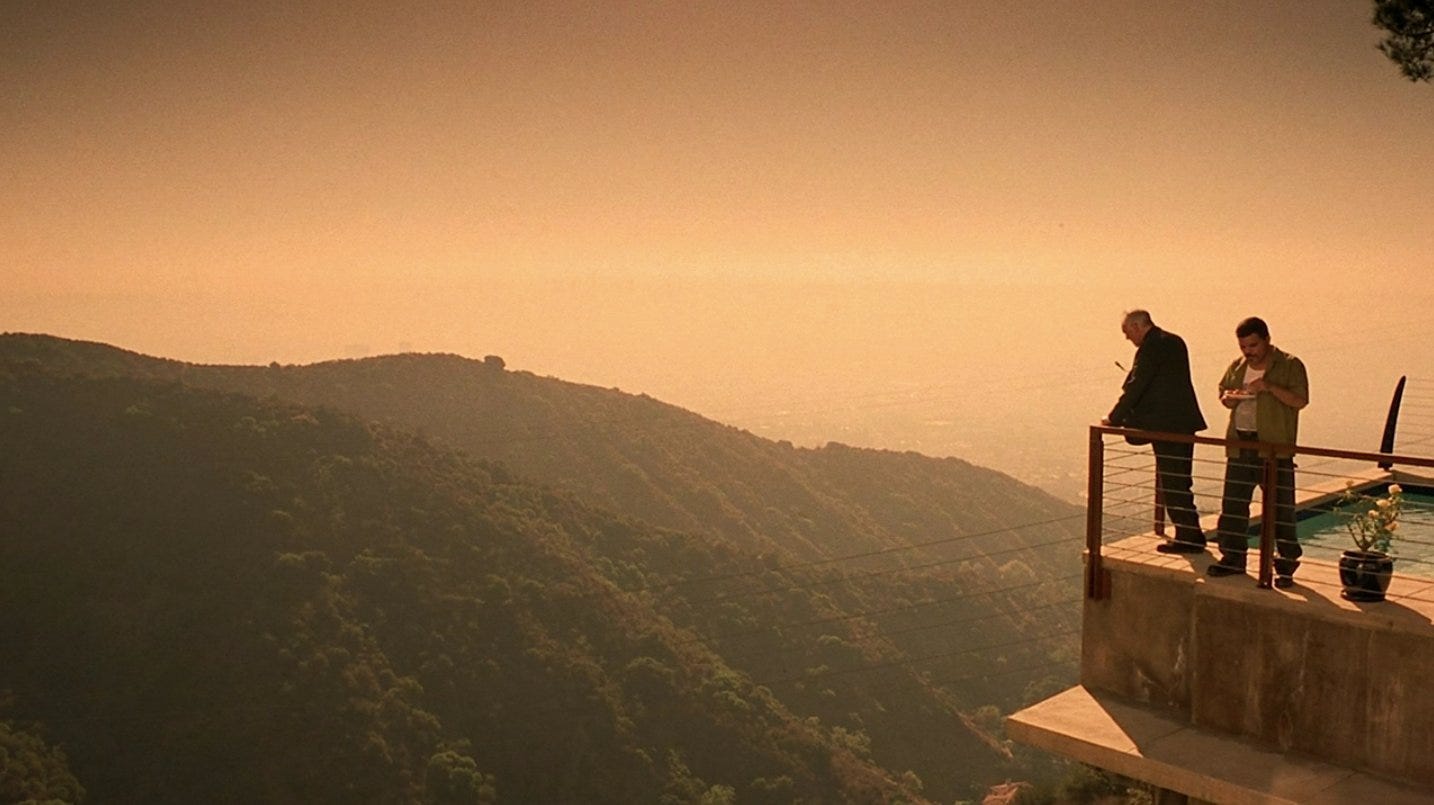Welcome back to The 90-Minute Movie! I appreciate you all for sticking with me while I slowed down the pace of my little slice of the internet. I plan to start picking things back up so please send your 90-minute movie recommendations! I’ve received a few on here that have made it to the list, but I am always looking for more. Oh and don’t forget to share me with your friends and lovers!
Roughly 1,000 years ago I watched Steven Soderbergh’s The Limey (1999) for the first time. Since it was 1,000 years ago, I hardly remembered it but I knew I liked it. In passing I always said things like, “Oh this is like The Limey!” “Hey, have you seen The Limey?” “We should watch The Limey sometime.” And so on and so forth. So when I sat down to watch it this week, it was like seeing it for the very first time. And it was still just as pleasurable.
A neo-noir flick set in, where else, Los Angeles, The Limey follows ex-con Wilson (Terence Stamp) as he leaves England to investigate and avenge his daughter’s death. As Wilson pulls at strings he not only unravels a large drug operation but also his own history with crime and how it affected his relationship with his daughter, Jenny. Having been in prison for 9 years, Wilson must rely on Jenny’s acting teacher Elaine (Lesley Ann Warren), and classmate Eduardo (Luis Guzman) for the details of his daughter’s life a world away. Which includes a relationship with record executive Valentine (Fonda) who is involved with some seedy and questionable people.
Something I didn’t appreciate the first time I saw this movie because I was just a kid, was what I am going to call collage editing. (Anyone who went to film school can go ahead and comment if there is a technical term here. I’m just a girl with a laptop, an English degree, and a love for movies.) The movie is diced and assembled together in such a way that time is layering over itself again and again. Soderbergh thought this technique would give the feeling of how the human mind works, saying, “We’re thinking about things that happen to us, we’re thinking about things that might happen to us or going to happen to us, and we’re also in the present, living in the present, hopefully.” We move between the recent past and present fluidly. From Wilson on a plane, in LA, knocking at the door of an apartment, sitting inside the apartment, and more. These are not major jumps between time (though that occurs too) but thin layers of time stacked closely together and on top of each other like playing cards.
The technique -- which came later in editing and stressed Soderbergh out quite a bit -- dispenses information to the audience non-linearly but never feels contrived or difficult. It flows like a dream or the memory of a dream; you can’t put all the pieces together like a puzzle but you know exactly what’s going on and what the picture should be. The Limey is a very post-modern flick. Within this fragmented storytelling, Soderbergh also borrows directly from those before him by using physical footage from Poor Cow (1967) starring Stamp, to act as memories of Wilson as a young man. It’s creative and effective but also reminds you that you’re watching a movie-- which is a truly post-modern experience.
Similar to this borrowing, Soderbergh “borrows” actors from the 1960s to fill his cast. So much of the underlying context and meaning of this movie is buried in the fact that Fonda and Stamp are two big stars from another era. Both Valentine and Wilson struggle to get a grip. Valentine delivers an enthralling monologue about the ‘60s and what it meant to be there… for his much younger girlfriend. Wilson is our fish out of water, finding it hard to be out of prison and in LA (of all places). If you didn’t know who either of these stars were, you could lose a lot of fun context for the finer points of the plot and how the two men are similar. And how both have benefitted from the music industry. (Valentine from the record sales, Wilson from his Pink Floyd con that ultimately sent him to prison.) Sure, the movie is enjoyable without this context but it’s much more fun with the added layer. The death of the freewheeling ‘60s is juxtaposed against the harsh realities of the ‘90s.
The Limey is one of Soderbergh’s best “experimental” films. Even though I’d argue it’s not that experimental… it’s just not Erin Brokovich or Magic Mike. It’s simple in its story, but complex in its methods and is a fun ride for only 89 minutes. If you’re a fan of crime stories I would certainly give this one a go. Like I said, it’s a neo-noir but ends with a great twist that will leave you feeling some feelings.







One of my favorites, I've watched this dozens of times.
It's also one of those cases where this is one of the last of the truly lawless DVD commentaries. Studios used to let you say ANYTHING on the commentary back then, and it was only the early 2000's when they started to post disclaimers and actively edit/censor commentaries.
The one for this one has Soderbergh actively fighting with screenwriter Lem Dobbs over the creative decisions Soderbergh made in basically chopping up Dobbs' screenplay and it gets really heated.
(not too heated: they later made "Haywire" together)
(fyi: Haywire -- 93 mins and excellent)
The Limey is such a great film and loved your post as always! I was living in LA back in1999 when it was released and saw it in the theater, and I've probably seen it a handful of times since then but it's been a long time. Like many of your reviews, it gets me to go back and revisit old favorites. Thanks!